Bitcoin pro traders were unmoved by BTC’s sell-off, data points to new price highs
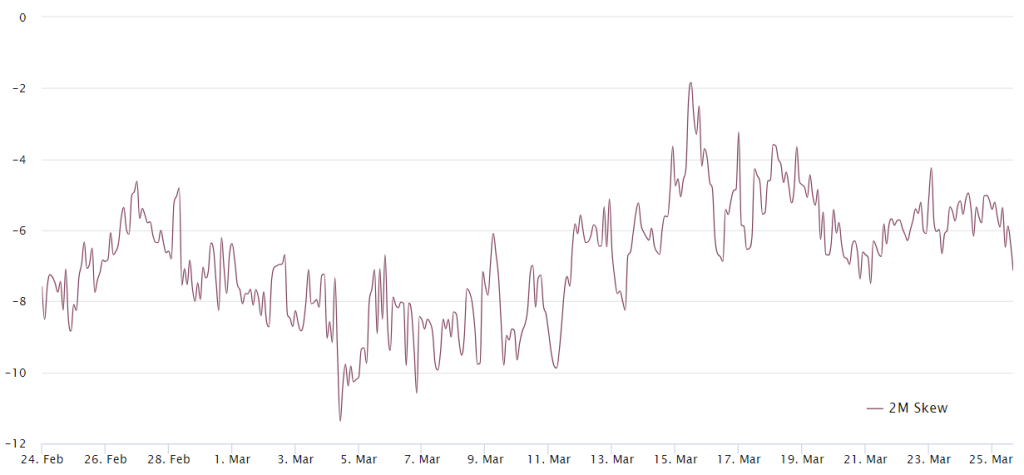
Bitcoin futures and options indicate growing strength at BTC’s $70,000

The newly launched spot Bitcoin (BTC) exchange-traded funds (ETFs) experienced their first week of net outflows from March 18 to March 22. A total of $888 million was withdrawn from the spot ETFs, marking a significant shift from the previous week’s $2.57 billion inflow. This has led to speculation about the sustainability of Bitcoin’s rally to $70,000 on March 25.
Bitcoin can rally in the absence of spot BTC ETF inflows
Some market participants had argued that institutional inflows were a key driver behind Bitcoin’s all-time high of $73,755 on March 14, casting doubt on the 9% gains seen between March 23 and March 25. Further raising concerns is the fact that this rally occurred while the S&P 500 index was unable to maintain its all-time high of 5,260 set on March 21.
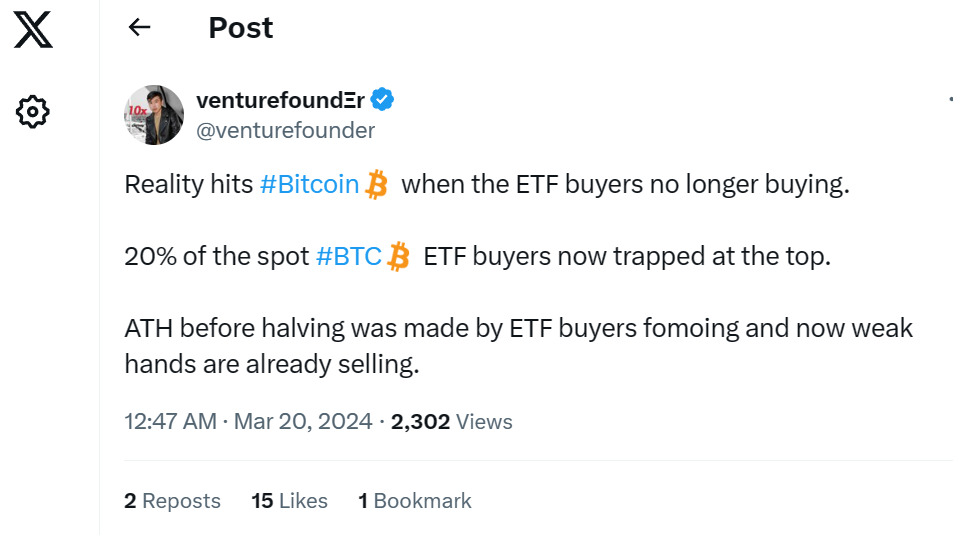
Analyst venturefoundΞr, on March 20, suggested that Bitcoin was facing a reality check after FOMO from ETF investors drove it to a new high before the halving, effectively “trapping” those who bought at the peak. While a 15% gain from March 20 to March 25 shouldn’t dismiss bearish concerns outright, Bitcoin’s market behavior suggests that its bullish momentum isn’t solely reliant on spot ETF inflows.
Some traders believe that the recent approval of a $1.2 trillion spending package by the United States on March 23 serves as a key positive catalyst for Bitcoin. This is particularly true in light of the U.S. Federal Reserve’s forecast model predicting three interest rate cuts throughout 2024. With the U.S. deficit expected to reach $1.6 trillion in 2024, the pressure on government debt repayment intensifies as interest rates hover above 5.25%.
The concurrent rise to all-time highs of scarce assets like gold, Bitcoin, real estate, and the stock market suggests a weakening U.S. dollar. Ultimately, the performance of the North American currency against the euro and the British pound is less relevant as investors seek refuge from fiat currency devaluation.
Concluding that Bitcoin’s price will continue its upward trajectory due to monetary expansion might seem premature. However, bears arguing that the U.S. fiscal trajectory will lead to a recession—which could negatively affect risk-on assets—miss a crucial point: Bitcoin’s price has already surged 64% year-to-date in 2024, leaving those waiting for a dip behind.
Bitcoin derivatives held firm during the dip below $62,000
To gauge whether professional traders have become more pessimistic about Bitcoin following the disappointing spot ETF inflow data, one should examine the BTC monthly futures contracts. In neutral markets, these contracts typically command a premium of 5% to 10%, accounting for their longer settlement period.
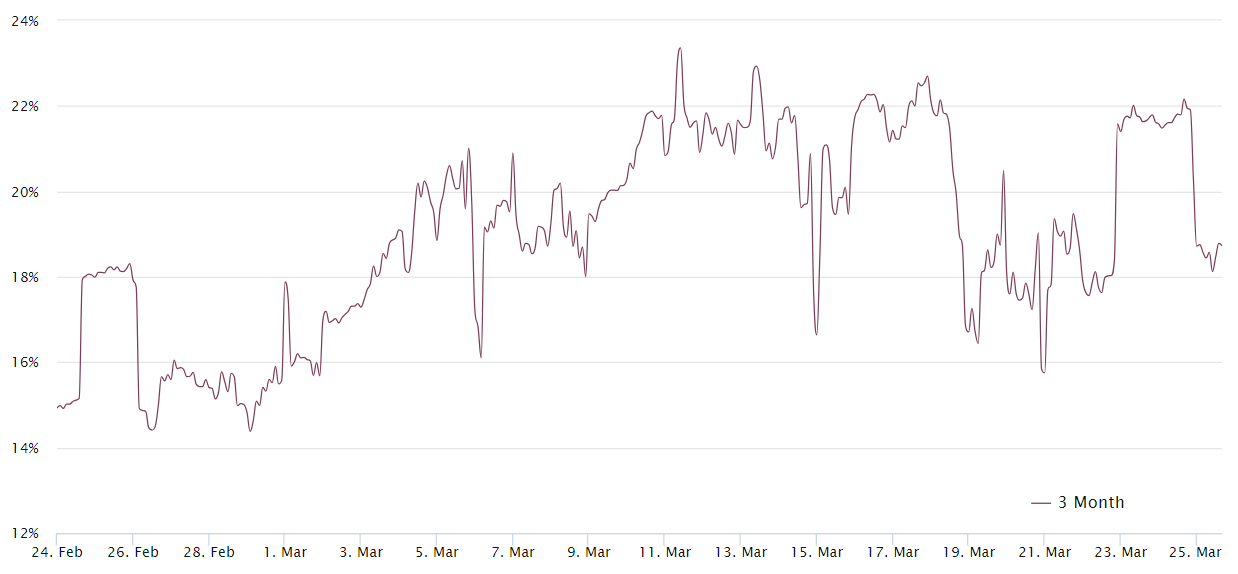
Data indicates that the annualized BTC futures premium was largely unaffected by the net spot ETF outflows. Currently, an 18% level is viewed as optimistic, suggesting buyers are willing to pay a premium to open leveraged long positions.
Related: Bitcoin ETFs could soften BTC price retracement before the halving
Examining the Bitcoin options market is crucial to determine if the March rally to $70,000 has increased the demand for strategies to hedge against potential price corrections. Typically, if traders expect a Bitcoin price drop, the skew metric will exceed 7%, whereas periods of enthusiasm often show a skew below 7%.
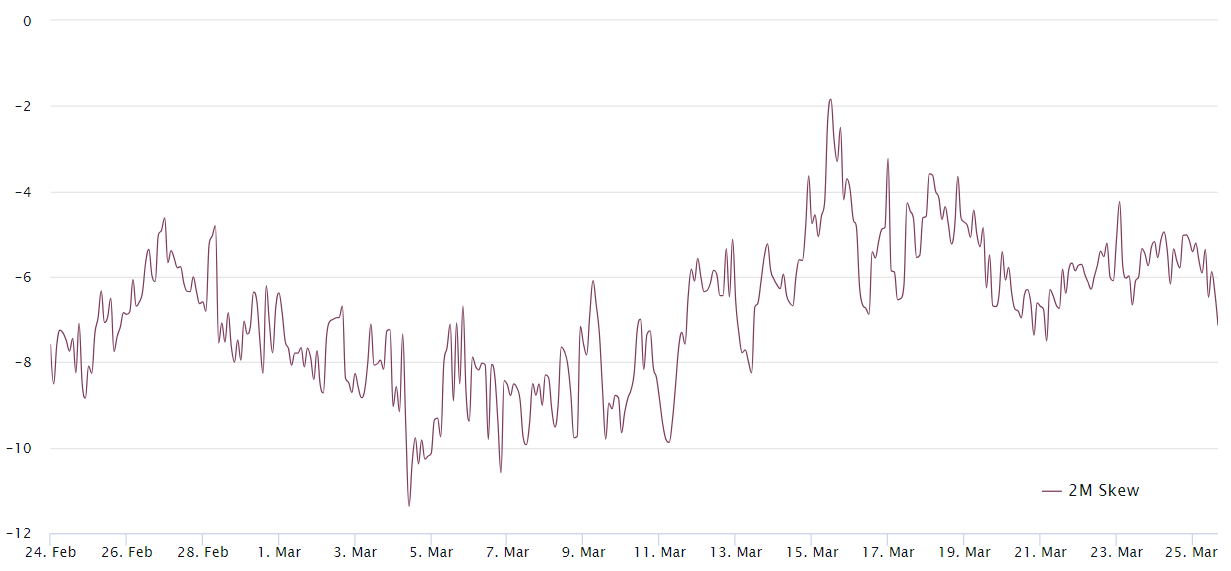
Since March 13, the BTC options 25% delta skew has remained in a neutral range, indicating a balanced demand for bullish and bearish options strategies. Notably, there were no signs of panic as Bitcoin tested the $62,000 support on March 20.
The indicators from Bitcoin derivatives markets suggest a strong price resilience despite the recent spot ETF outflows, supporting the likelihood that the $70,000 support level is gaining strength.


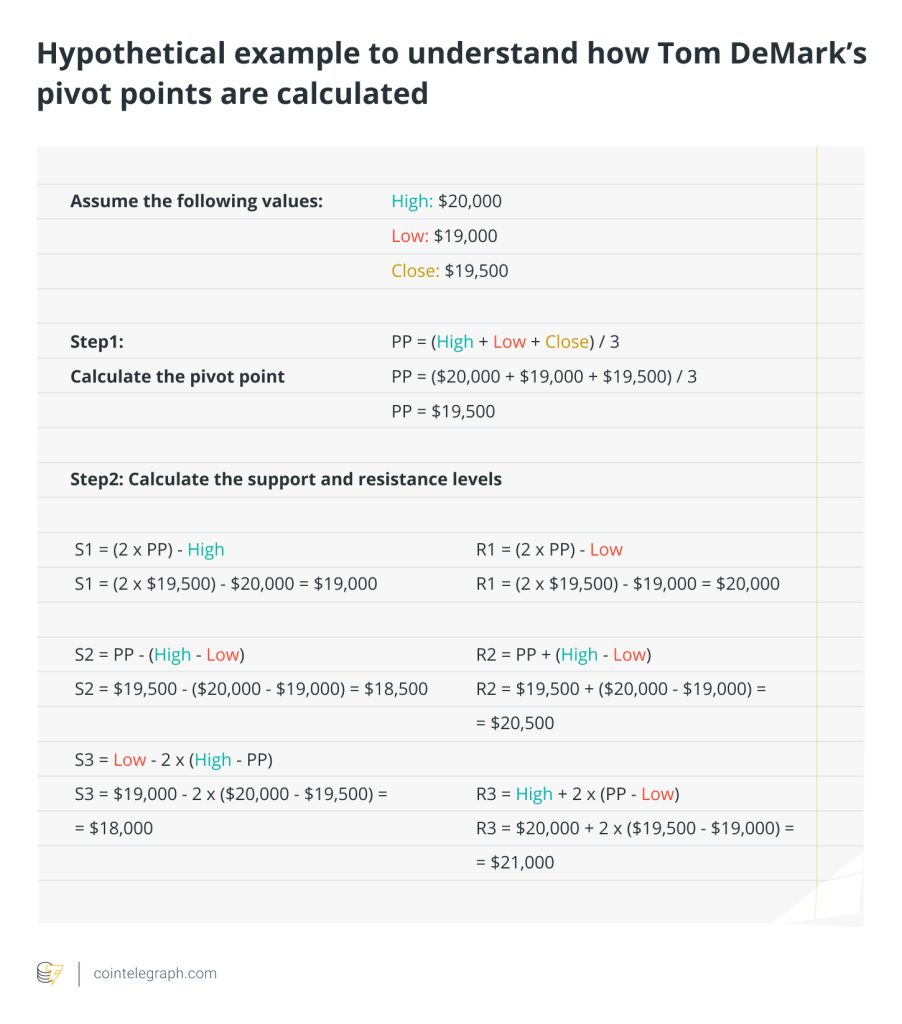
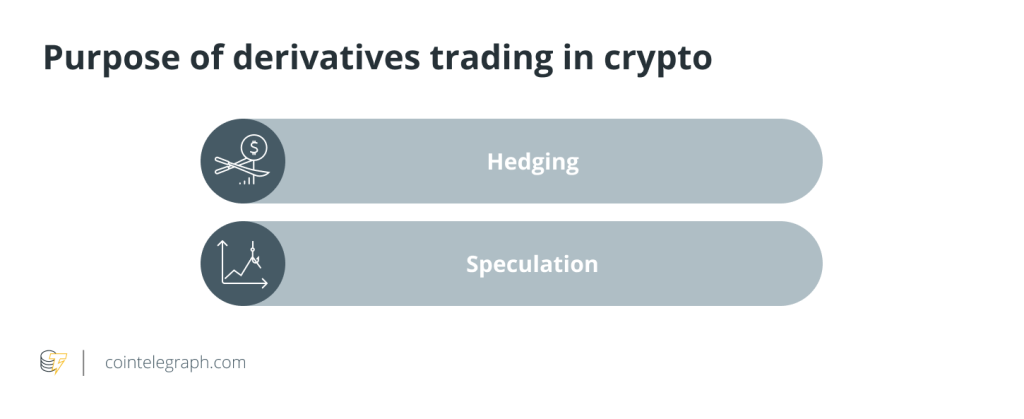

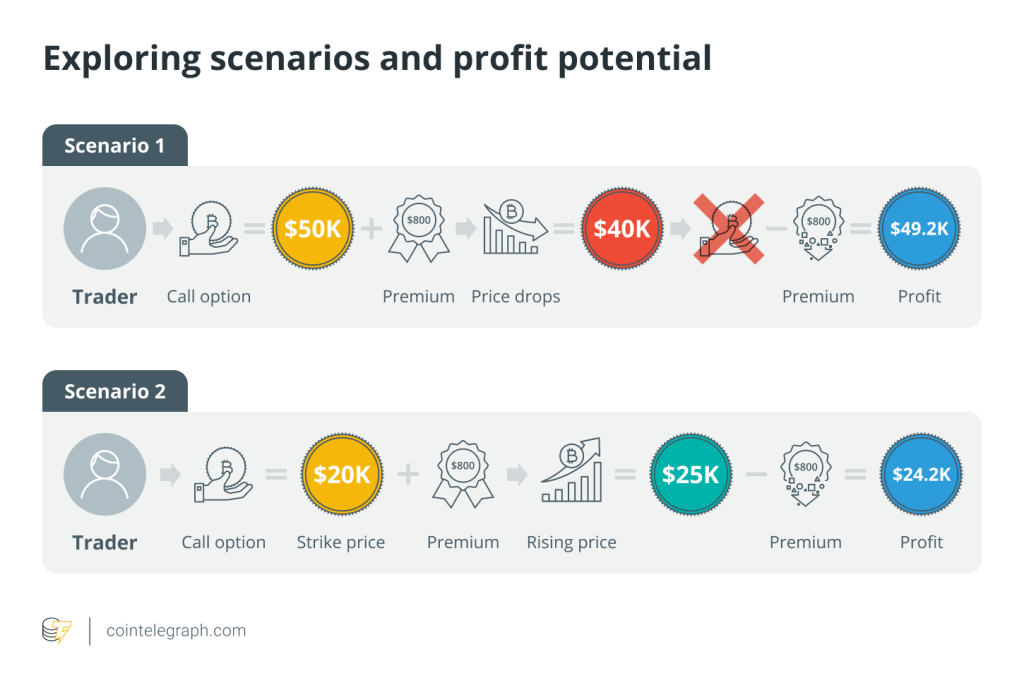
Responses